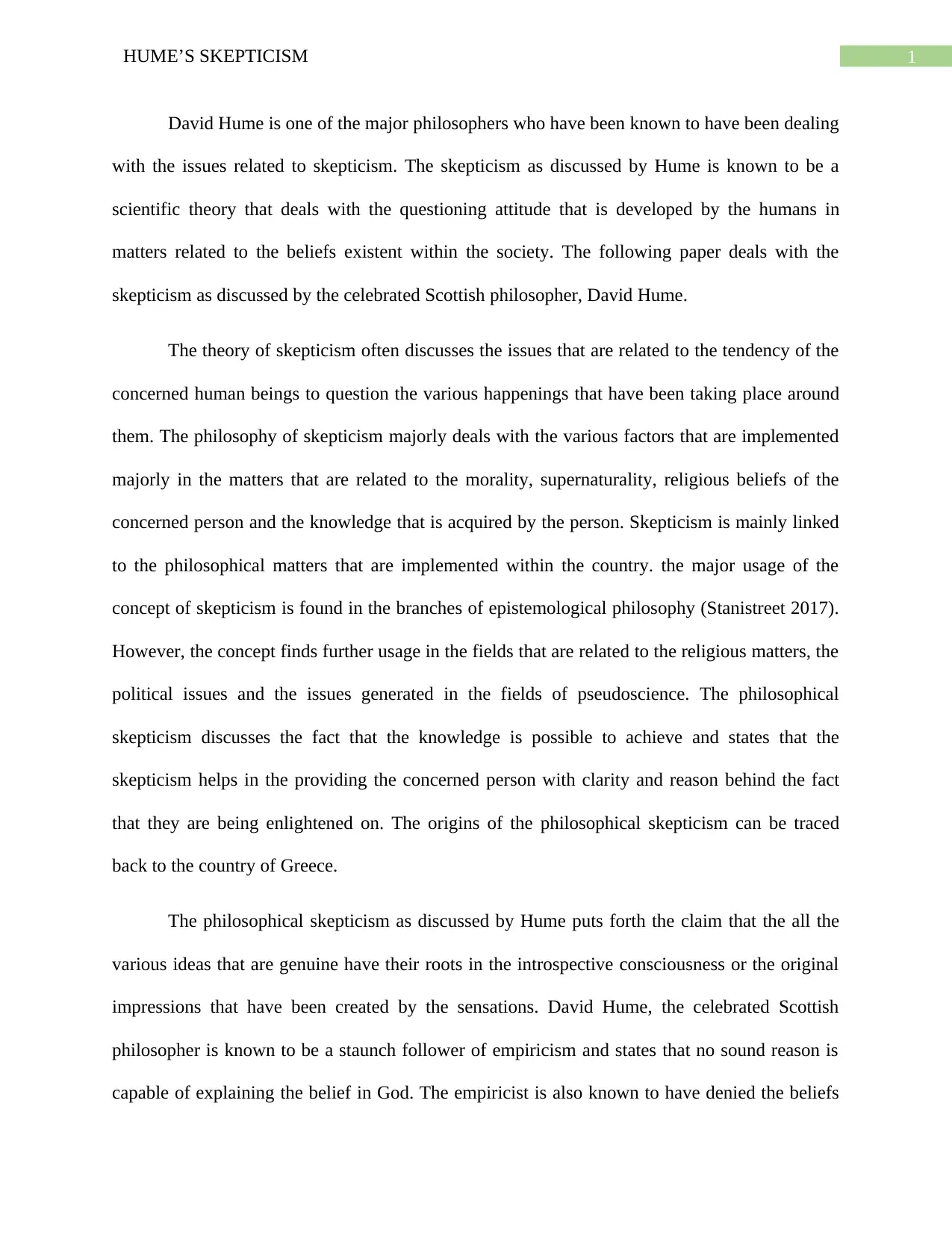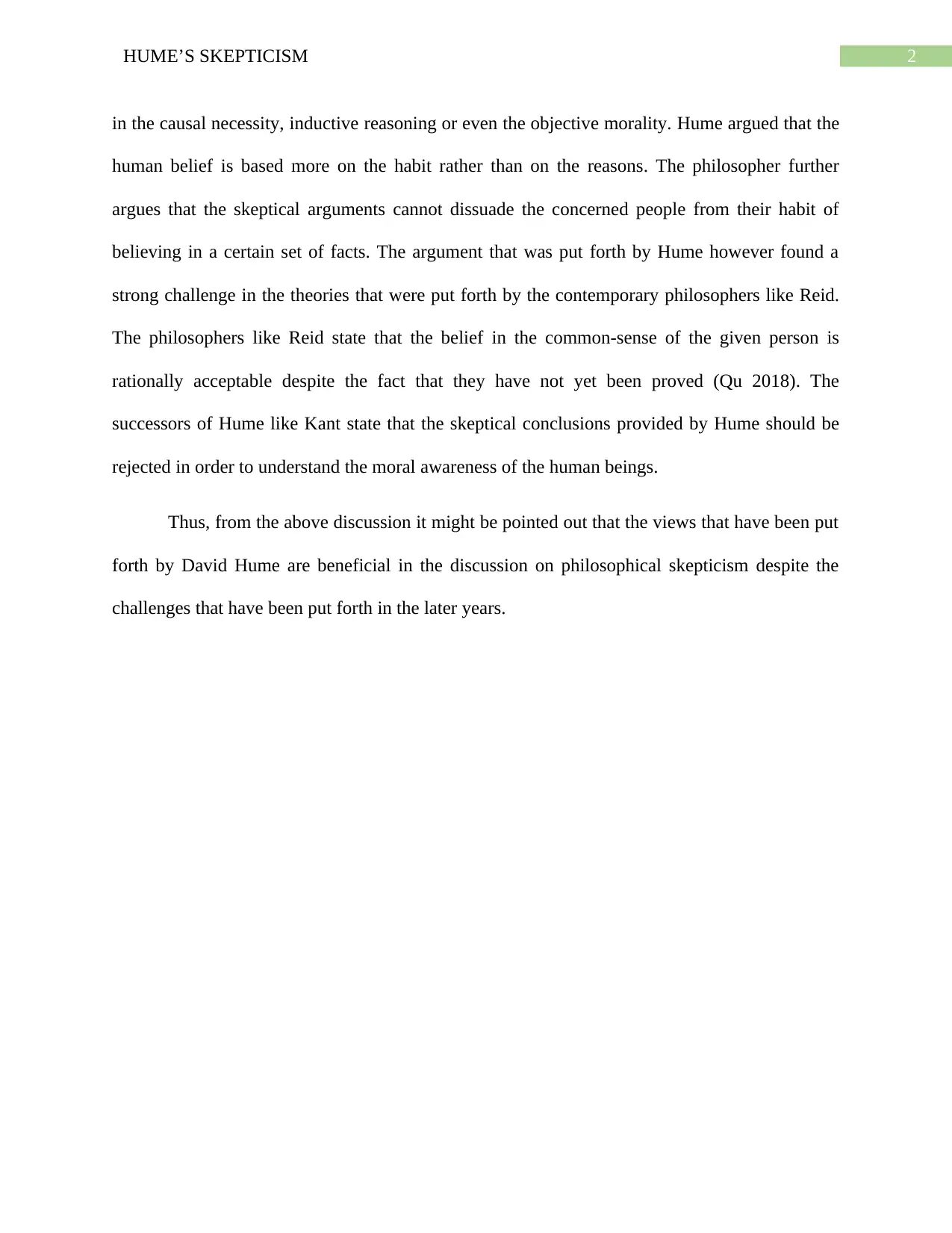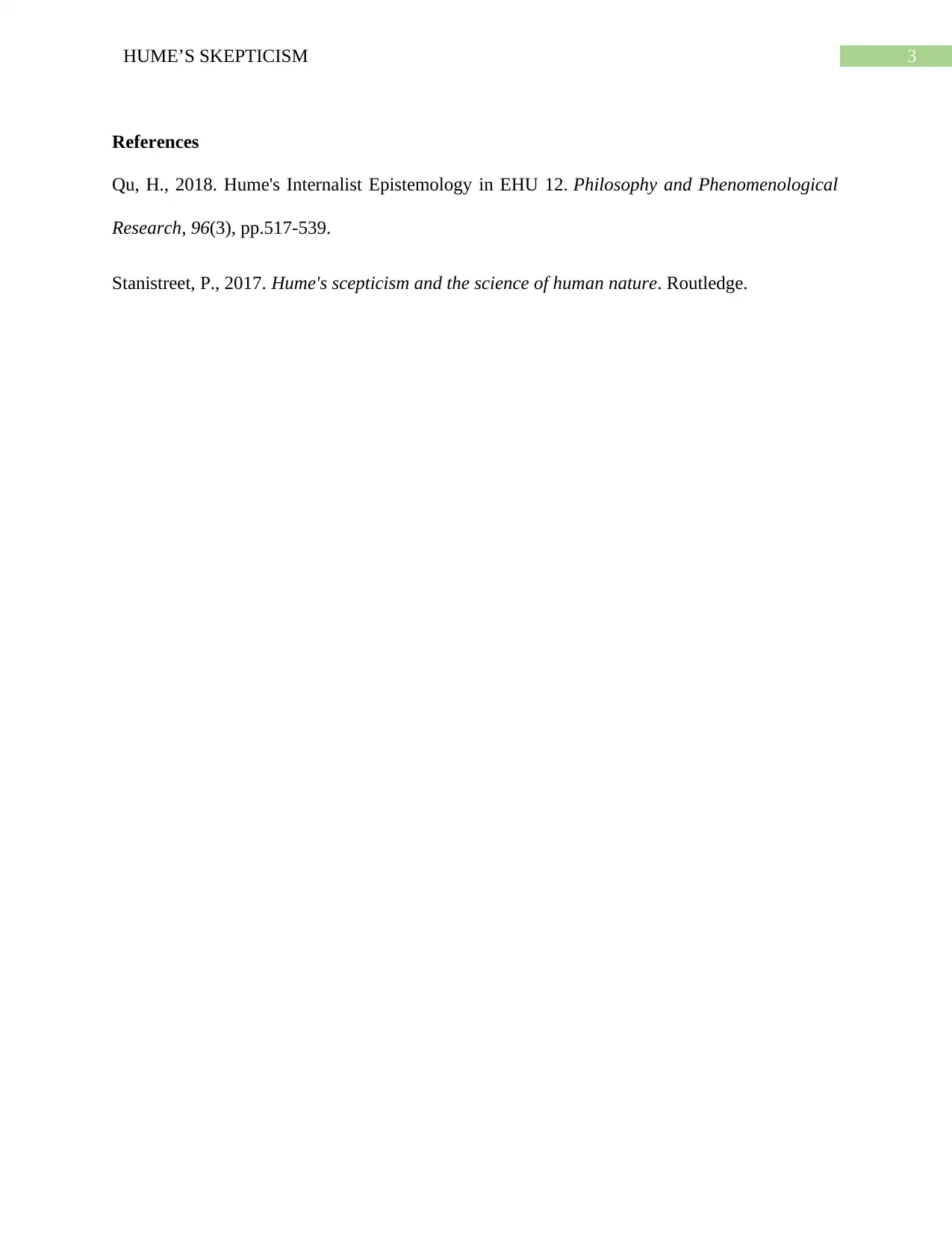Hume's Skepticism: A Philosophical Analysis
VerifiedAdded on 2023/05/31
|4
|623
|67
AI Summary
This paper provides a philosophical analysis of skepticism as discussed by David Hume, a celebrated Scottish philosopher. It discusses the origins and usage of skepticism in various fields and Hume's views on empiricism, belief in God, and objective morality.
Contribute Materials
Your contribution can guide someone’s learning journey. Share your
documents today.
1 out of 4










![[object Object]](/_next/static/media/star-bottom.7253800d.svg)